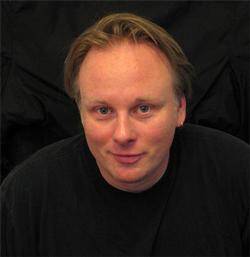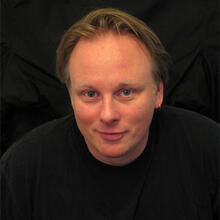Trust me, Bill” a retired priest friend said to me a few years ago; “if the church didn’t utter another word about sex for 5,000 years, people would still know what Catholicism says about it: NO!” He said it with a mix of humor and exasperation while venting his frustration over how difficult it was to deal with the issue pastorally. So many of the people he encountered over many decades—married, unmarried, straight, gay, etc.—longed for wholeness in their lives and relationships but couldn’t take the church seriously on sexual matters.
The reasons for that disconnect ranged from active disillusionment over the hypocrisy surrounding the sex abuse scandal to simple irrelevance because these people had grown up in a culture that enshrined “good sex” as an inalienable right on a par with life and liberty.
My friend’s words came back to me as I read about Father Andrew Greeley’s passing at the end of May. I was reminded of the research he published in the mid-90s in which he found that—contrary to the stereotype—Catholics weren’t hung up and prudish at all when it came to sex. In fact, his study found that Catholics were having more and better sex than their Protestant and Jewish counterparts.
Greeley’s statement no longer sounded provocative. What struck me instead was how it stood in such stark contrast to the findings of my own research. I’ve found an epidemic of bad sex that appears to be flourishing across the board among young adults.
The statistics tell us that 70 percent to 80 percent of college-age students are sexually active, but what they don’t say is how numbing and sad much of that sex actually is. In my book The Freshman Survival Guide, the most compelling insights on “hook-up culture” on campus came from campus ministers—across all denominations—who are trying to help students make sense of these experiences. “It’s not hard to find people in college feeling ambiguous, if not crappy, about their sexual life—once you scratch below the surface” said Rabbi Yonah Schiller, director of Hillel at Tulane University. “Our need for intimacy comes from a spiritual desire to be connected to people; their bad feeling comes from that connection not being rooted in anything real.”
The Rev. Scott Young, Protestant campus minister at the University of Southern California, echoed Rabbi Schiller, saying that sex has become simply one more commodity students think they need to have to be successful human beings. “This is where we can help them see the disconnect as to why they’re feeling terrible about the experience: They’re feeling like an object.”
Kerry Cronin, who works in mission and ministry at Boston College and speaks on the issue at colleges across the country, finds students “startlingly underwhelmed” by sex. In her conversations with them, issues like romance, dating and sex seem more confusing than anything else. “It all just seems like a lot of work to them” she says. “They have a notion that it means something, but they have no idea what.”
Cronin sees this as symptomatic of growing up during a time when sex has become entirely unmoored from any religious or cultural institutions like marriage and family. Young people have no reference points to access or identify the meaning of their sexual behavior and the emotional fallout after. “Without the scaffolding of meanings and values, it’s all pretty quickly reduced to whatever they need from it now: pleasure, an ego boost, etc.,” she says. “Young people are having plenty of sexual encounters, but the sex they are having doesn’t seem to be all that good.”
Despite the onslaught of their experiences, Cronin continues to be surprised at the depth of her students’ blankness. “The really sad thing is that they seem hopeless about it. They don’t believe they’ll be able to find anything particularly meaningful in any of the hook-ups they’re having.”
What my retired priest friend once thought sounded like a universal declaration of no from on high now feels like a quaint echo from a more innocent age. The sound we hear reverberating now isn’t a declaration at all; instead, it is a painful question being directed at young adults over and over again by those on the front lines with them: “Why?”









Great points Chris. It sounds like you're involved with people who are trying to think deeply about this issue (and all the related issues that surround it). In addition to the folks I spoke with for The Freshman Survival Guide, Kerry Cronin's work at Boston College (and the numerous schools she's asked to speak at) is well worth being included in the discussion. I met her after our book was done so I couldn't include her but her insights and experience are powerful.